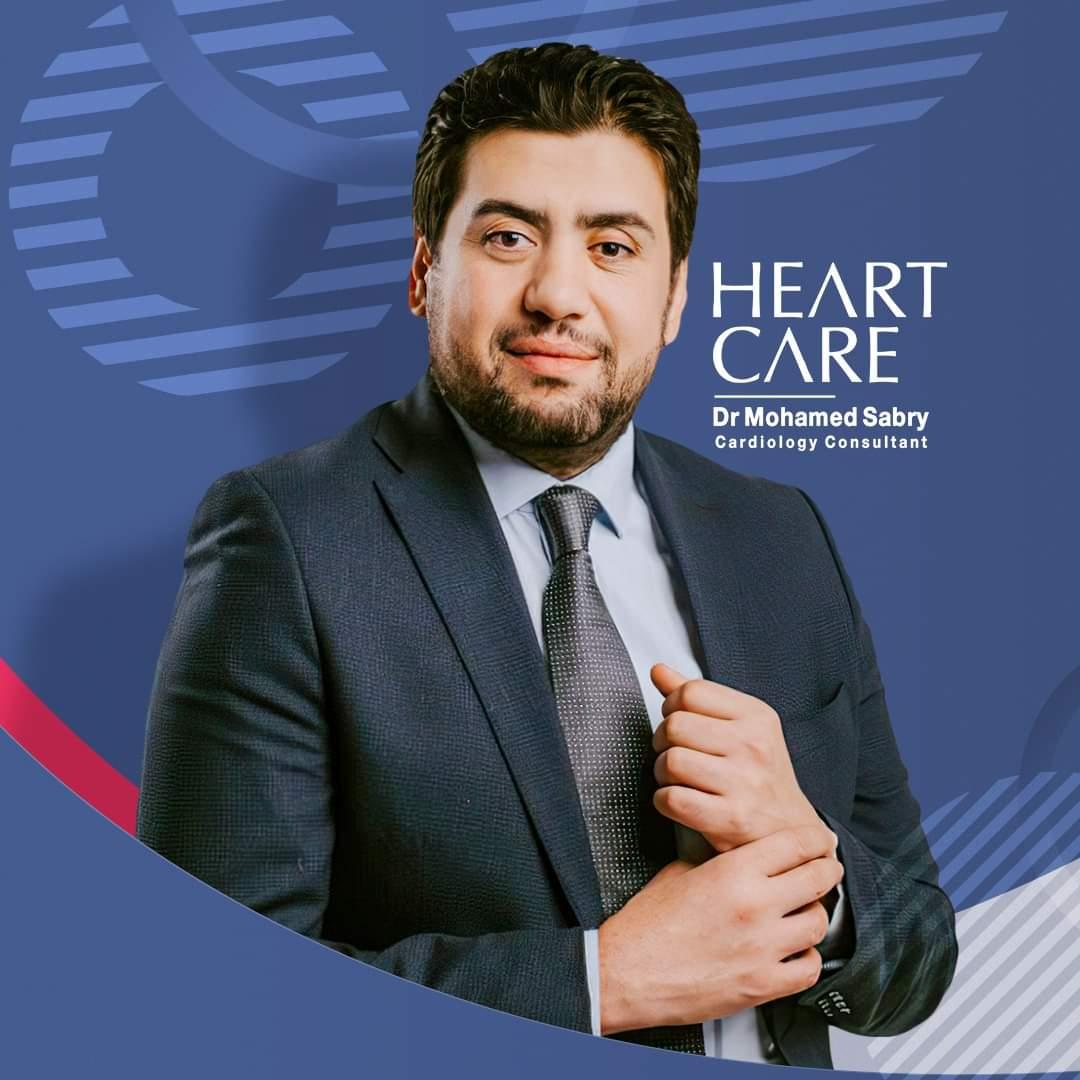🩺 Dr. Mohamed Sabry Al-Hadiny
💓 Consultant Cardiologist and Vascular Specialist
💉 Consultant in Cardiology and Interventional Catheterization at the National Heart Institute
About the Doctor:
Dr. Mohamed Sabry Al-Hadiny is a consultant in cardiology and vascular diseases, specializing in interventional catheterization and treating complex heart conditions using advanced medical technologies. He has extensive experience in diagnosing and treating heart diseases and works at the National Heart Institute, as well as Cleopatra, Dar El Fouad, and Nile Darawi hospitals. Dr. Mohamed is known for his expertise in interventional catheterization, a technique that allows for heart and vascular treatment with minimal risk and faster recovery. He also specializes in treating heart attacks using advanced techniques such as drug-eluting stents.
Main Specialties:
Heart Attack Treatment with Catheterization 🫀
Dr. Mohamed uses interventional catheterization to treat heart attacks caused by coronary artery blockages.
Drug-eluting stents help improve blood flow and prevent blood clots after the procedure.
Coronary Artery Catheterization 💉
Interventional catheterization is used to diagnose and treat coronary artery blockages.
The treatment may involve placing stents or using techniques to expand the arteries, performed through small incisions, reducing the need for open heart surgery.
Aortic Valve Replacement with Catheterization 🦠
Dr. Mohamed offers aortic valve replacement using catheterization instead of open surgery, which is safer, especially for patients with weak hearts or elderly patients.
Balloon valve expansion is also an option to treat aortic valve stenosis.
Pacemaker Insertion ⏱️
Dr. Mohamed specializes in inserting pacemakers to treat heart rhythm disorders, such as slow heart rates, maintaining normal electrical activity in the heart.
Congenital Heart Defect Treatment in Children 👶❤️
Dr. Mohamed treats congenital heart defects in children using interventional catheterization, such as atrial septal defects or arterial stenosis.
Heart Muscle Weakness Treatment (Heart Failure) 💔
Dr. Mohamed treats heart muscle weakness resulting from coronary artery disease or heart attacks, often using medications or devices like pacemakers to improve heart function.
Tachycardia Treatment (Fast Heart Rate) ⚡
Treatment of tachycardia using medications, interventional catheterization, or electrical therapy to restore the natural rhythm of the heart.
Available Medical Services:
Blood Pressure Monitoring (24/48 hours) 🩺
Blood pressure monitoring using a Holter device for diagnosing chronic hypertension or hypotension, which can affect heart health.
Heart Rate Monitoring (48 hours / 1 week) 📉
Holter monitoring for up to a week to help diagnose heart rhythm disturbances like atrial fibrillation or tachycardia.
Diagnostic and Therapeutic Catheterization 🏥
Diagnostic catheterization to assess heart health and detect coronary artery problems.
Therapeutic catheterization to treat artery blockages by expanding blood vessels or placing stents.
Electrocardiogram (ECG) 💖
Regular ECG to evaluate electrical activity of the heart.
Stress ECG performed during physical activity like walking or running on a treadmill to diagnose coronary artery disease.
Echocardiography (Echo) 🌊❤️
A test that uses ultrasound waves to measure heart function, valve efficiency, and blood pumping capacity.
Academic Qualifications:
Consultant in Cardiology and Vascular Diseases
Ph.D. in Cardiology
Diploma in Interventional Catheterization
Extensive experience in treating chronic and complex heart conditions using advanced techniques.
Professional Memberships:
Member of the Egyptian Cardiology Society
Member of the European Society of Cardiology
Member of the European Society of Coronary Artery Catheterization
Work Locations:
National Heart Institute
Cleopatra Hospital
Dar El Fouad Hospital
Nile Darawi Hospital
For Appointments and Inquiries:
📞 Call: 01113595854
📍 Clinic Address:
97 Tahrir Street, Dokki, above Gad Restaurant, 12th Floor, Dokki and Mohandessin.

